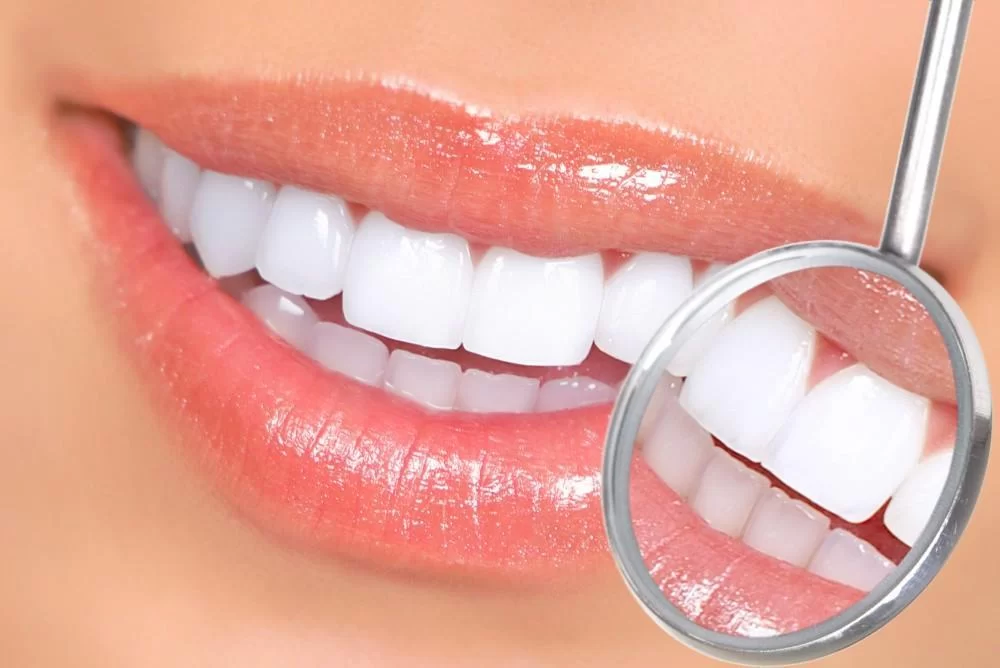
Signs That You Need a Dental Cleaning: How to Recognize the Warning Signs
- 1. Why Dental Cleaning Is Important
- 2. Common Signs You Need a Dental Cleaning
- 3. What Happens if You Ignore a Dental Cleaning?
- 4. How Often Should You Get a Dental Cleaning?
- 5. Benefits of Professional Dental Cleaning
- 6. How to Prevent the Need for Frequent Cleanings
- 7. When to Visit Your Dentist for a Cleaning
1. Why Dental Cleaning Is Important
Dental cleaning is essential for maintaining good oral hygiene. Even with regular brushing and flossing, plaque and tartar can still accumulate on your teeth, leading to oral health problems. Professional dental cleaning not only removes these build-ups but also helps prevent gum disease, cavities, and other oral health issues. Keeping up with regular cleanings can ensure a healthy, bright smile for years to come.
2. Common Signs You Need a Dental Cleaning
There are several signs that indicate you might need a dental cleaning. Recognizing these early can help you prevent more serious issues down the line:
- Bad Breath (Halitosis): Persistent bad breath can be a sign of plaque buildup and gum disease. If brushing and mouthwash don’t solve the issue, it's time to see a dentist.
- Gum Disease Symptoms: Swollen, bleeding, or tender gums are warning signs of gum disease. If you notice these symptoms, a dental cleaning is necessary to remove tartar and bacteria.
- Visible Plaque or Tartar: If you can see yellowish or brown plaque or tartar on your teeth, it’s a clear sign that professional cleaning is needed. Plaque hardens into tartar, which can only be removed by a dentist.
- Tooth Sensitivity: Increased sensitivity to hot or cold can indicate gum recession, which may be caused by poor oral hygiene or tartar buildup along the gumline.
- Discoloration: Teeth that are stained or discolored, especially along the gumline, are often a result of plaque or tartar buildup. A dental cleaning can restore your teeth to their natural color.
3. What Happens if You Ignore a Dental Cleaning?
Ignoring the need for regular dental cleanings can lead to serious oral health problems, including:
- Gum Disease: If plaque and tartar are not removed, they can irritate and infect the gums, leading to gingivitis and more severe periodontitis, which may result in tooth loss.
- Cavities: Plaque buildup creates a breeding ground for bacteria that cause tooth decay. Over time, this can lead to cavities, requiring fillings or more invasive treatments.
- Tooth Loss: Advanced gum disease can cause the teeth to loosen or even fall out, making replacement necessary.
- Bad Breath: Neglecting regular cleanings can result in persistent bad breath caused by bacterial buildup.
4. How Often Should You Get a Dental Cleaning?
The American Dental Association (ADA) recommends visiting your dentist for a cleaning at least once every six months. However, some people may need to visit more frequently depending on their oral health. For example, if you have gum disease or are prone to plaque buildup, your dentist may suggest cleanings every three to four months.
5. Benefits of Professional Dental Cleaning
There are numerous benefits to having your teeth cleaned by a professional:
- Prevention of Gum Disease: Regular cleanings can help prevent the buildup of plaque and tartar, which can lead to gum disease.
- Early Detection of Oral Problems: Dentists can spot early signs of tooth decay, gum disease, or other oral health issues, allowing for timely treatment.
- Improved Overall Health: Maintaining good oral health has been linked to a reduced risk of heart disease, diabetes, and other systemic health conditions.
- Enhanced Smile Appearance: Professional cleaning removes surface stains, making your teeth look whiter and brighter.
6. How to Prevent the Need for Frequent Cleanings
Maintaining good oral hygiene at home is key to reducing the need for frequent dental cleanings. Here are some habits to adopt:
- Brush Twice a Day: Use fluoride toothpaste and brush for at least two minutes twice a day.
- Floss Daily: Flossing helps remove food particles and plaque between your teeth where your toothbrush can't reach.
- Use Mouthwash: A fluoride or antimicrobial mouthwash can help reduce plaque and keep your gums healthy.
- Eat a Healthy Diet: A balanced diet with plenty of fruits, vegetables, and water can help maintain oral health.
7. When to Visit Your Dentist for a Cleaning
If you're experiencing any of the signs mentioned above or it's been more than six months since your last cleaning, it’s time to schedule a dental appointment. Regular visits to your dentist are essential for maintaining optimal oral health. You can schedule an appointment today and ensure your teeth and gums remain healthy.
Don't wait for serious oral health problems to arise. Regular dental cleanings are vital for maintaining a healthy, beautiful smile. If you’ve noticed any signs that you may need a cleaning, or if it’s time for your routine checkup, visit Dentistry Toothtruth for professional dental services. Start taking care of your smile today!







 Dr. Cat & the Tooth Pediatric Dental Office: Catherine Guerrero, DMD5.0 (558 review)
Dr. Cat & the Tooth Pediatric Dental Office: Catherine Guerrero, DMD5.0 (558 review) Brunswick Dental Group3.0 (71 review)
Brunswick Dental Group3.0 (71 review) Dental Wellness of Portland4.0 (28 review)
Dental Wellness of Portland4.0 (28 review) Dr. Joe Gordon, DDS4.0 (10 review)
Dr. Joe Gordon, DDS4.0 (10 review) The Implant Center at Comprehensive Dental4.0 (421 review)
The Implant Center at Comprehensive Dental4.0 (421 review) Westchester Dental Design: Implant, Cosmetic, & Family Dentistry4.0 (45 review)
Westchester Dental Design: Implant, Cosmetic, & Family Dentistry4.0 (45 review) The Importance of Oral Health Education During Pregnancy for a Healthy Pregnancy
The Importance of Oral Health Education During Pregnancy for a Healthy Pregnancy Best Tips for Brushing Your Teeth Properly for Healthy Gums: Essential Techniques for Oral Health
Best Tips for Brushing Your Teeth Properly for Healthy Gums: Essential Techniques for Oral Health Why Skipping Dental Checkups Can Lead to Bigger Oral Health Problems
Why Skipping Dental Checkups Can Lead to Bigger Oral Health Problems Advantages of Porcelain Dental Restorations
Advantages of Porcelain Dental Restorations How Can Diabetes Cause Tooth and Gum Problems? Preventing and Managing Oral Health Issues
How Can Diabetes Cause Tooth and Gum Problems? Preventing and Managing Oral Health Issues Healthy Habits for Promoting Good Oral Health and Hygiene: Tips for a Healthy Smile
Healthy Habits for Promoting Good Oral Health and Hygiene: Tips for a Healthy Smile